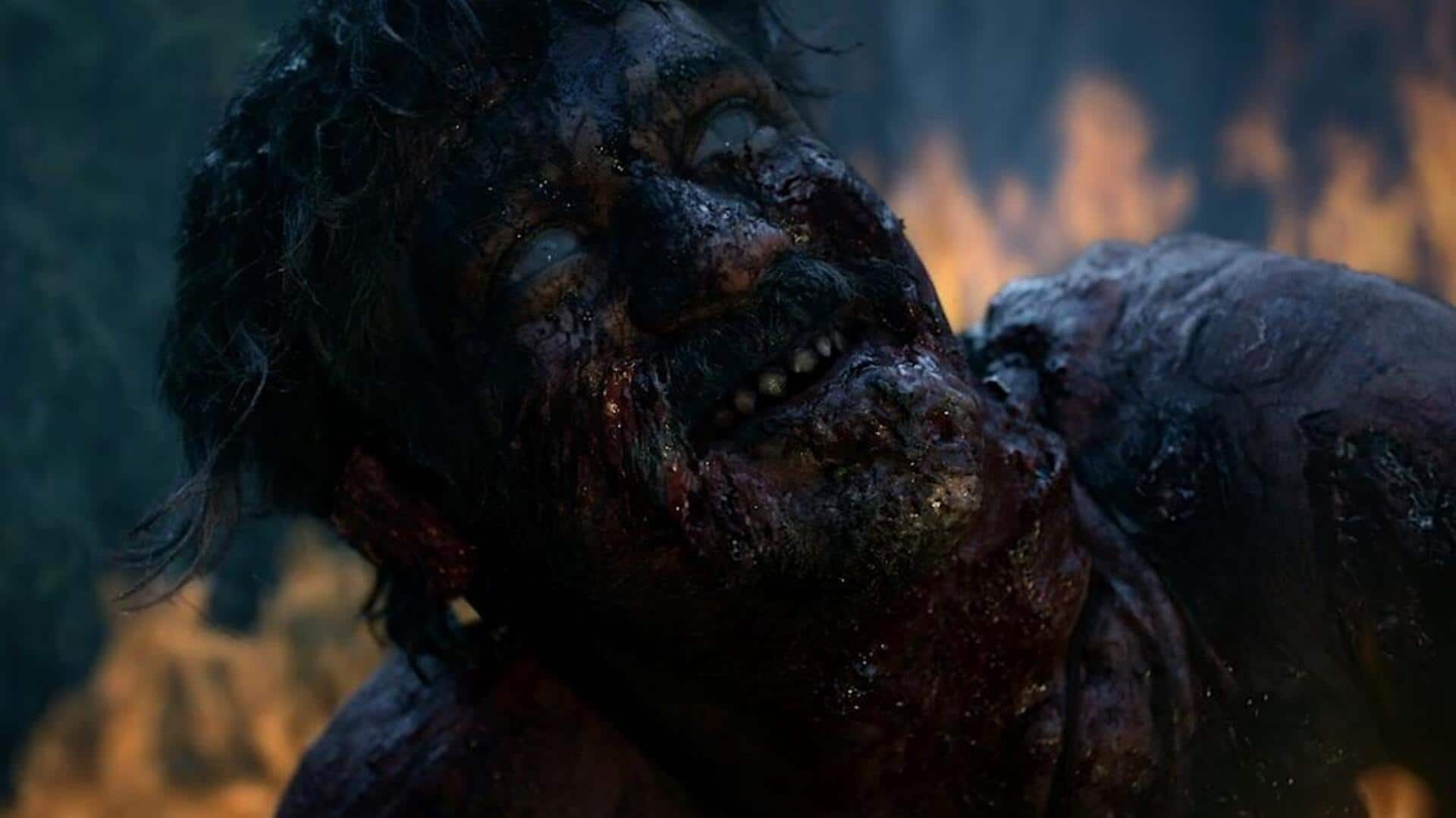
'Tumbbad's 5th anniversary—what makes it a stunning, unforgettable masterpiece
What's the story
Rahi Anil Barve's labor of love and a frontrunner in Hindi cinema's horror genre, Tumbbad clocked five years of its release on Thursday. With a solidly engrossing screenplay that blends the themes of man's unquenchable greed and the pervasive rural caste system, Tumbbad warrants multiple watches and reinforces how the deadliest horror doesn't lurk in the shadows but, instead, often lies in humans' hearts.
#1
Themes: Allegory of greed, gluttony, extreme selfishness
Tumbbad begins with the quote, "There's enough for everybody's need but not for everyone's greed," an idea that reverberates throughout as Vinayak (Sohum Shah) keeps returning to the "Goddess's womb" that literally births gold. It's not the monster or the fate of the ones touched by the monsters that send shivers down our spines—it's Vinayak's greed that he ultimately passes on to his son.
#2
It feels like the portrayal of a popular folk tale
When Tumbbad begins with the story of the Goddess of Prosperity and her son Hastar, it begins to remind us of folklores we have grown up listening to/reading. Hastar's curse (that he'd not be worshipped) is defied by the villagers, and thus, "the Goddess's anger lashes Tumbbad in the form of an incessant downpour." Tumbbad successfully charges itself with the power of mythical storytelling.
#3
Cinematography, mood, setting, and real Monsoons
Tumbbad was famously shot over the course of four Monsoons, so the rains that we see onscreen are not manufactured, but strikingly real. Not only does this lend Tumbbad an air of heightened originality, but it also makes it more suspenseful, fast-paced, and thrilling and augments its mood and temperament. Half of Tumbbad is soaked in rains—a harbinger of doom, destruction, and death.
#4
The final twist we never saw coming
When Pandurang (Mohammad Samad) devises the idea of feeding Hastar multiple dough dolls, it leads to something neither he nor Vinayak or the audience has anticipated—the clones of Hastar begin multiplying, eventually turning Vinayak into a charred monster—the same way Vinayak's grandmother slumbered in her last days. At this point, everything comes full circle—Pandurang is a child, but Vinayak should have known much better.
#5
Why doesn't Hastar simply kill?
To elaborate upon the aforementioned theme of people turning into grotesque monsters after Hastar's touch, Tumbbad makes a point about the far-reaching impact of unchecked avarice. The defaulters here (like Vinayak's grandmother or Vinayak) seemly do not just die but are condemned to a life worse than death, cursed to rot, decay, and eventually perish. There is dignity in death, but none in greed.
#6
It's everything you want it to be
Tumbbad is everything at once—a commentary on the caste system in rural, pre-Independence India (particularly in the first few scenes), a thriller about a man's undoing, an atmospheric drama about the path of destruction Vinayak builds for himself, and a representation of a man rotten beyond redemption. One of those films that unquestionably deserves the masterpiece tag, Tumbbad is streaming on Amazon Prime Video.